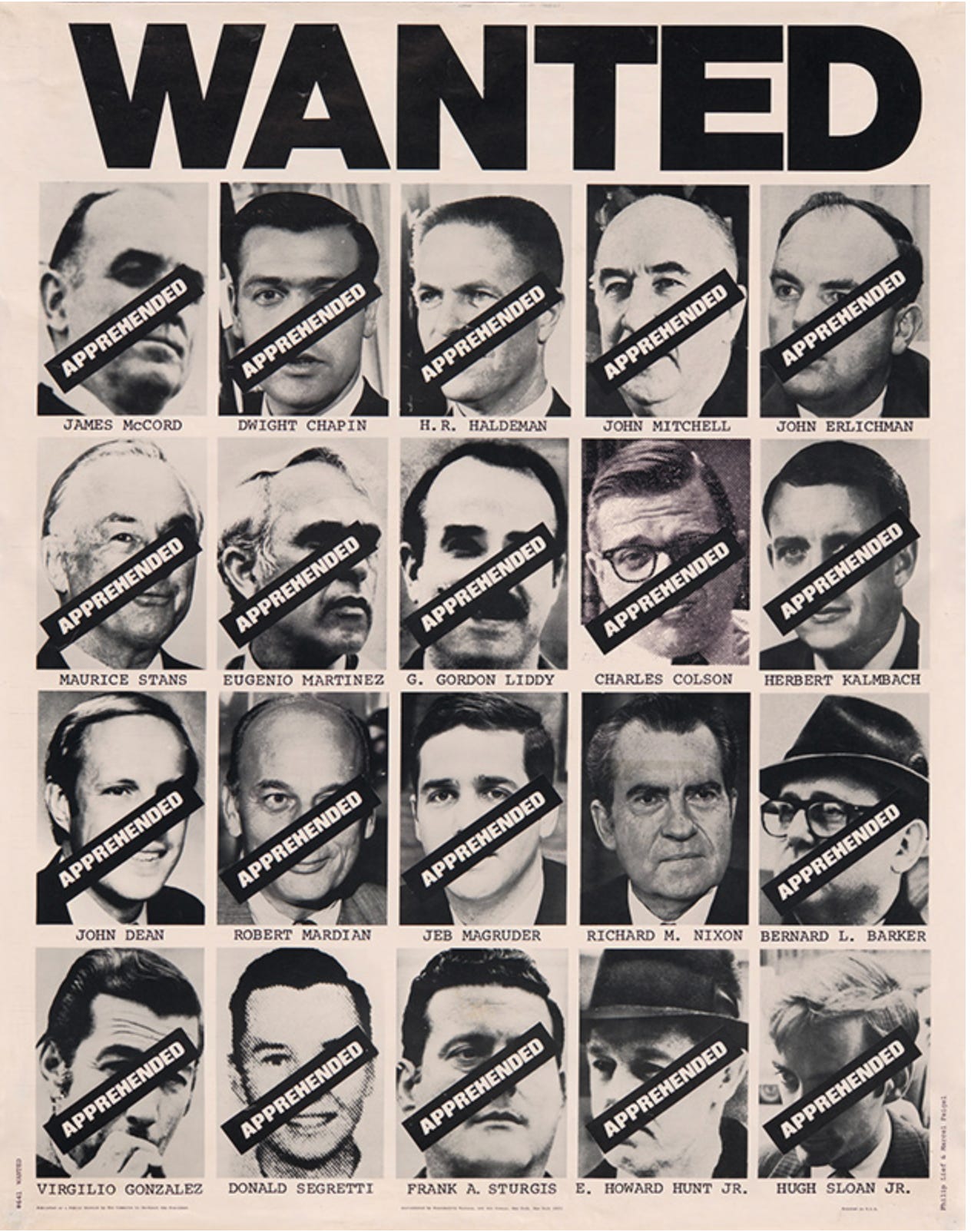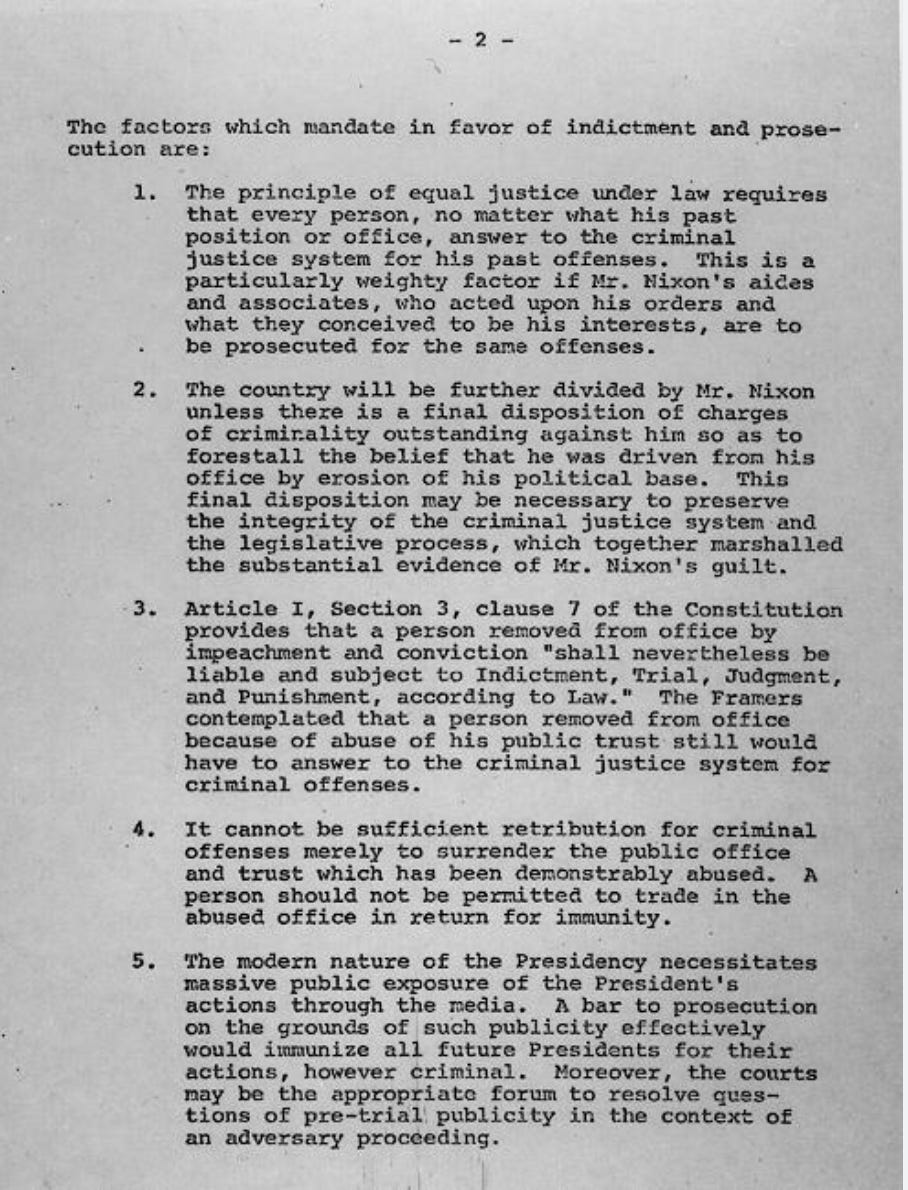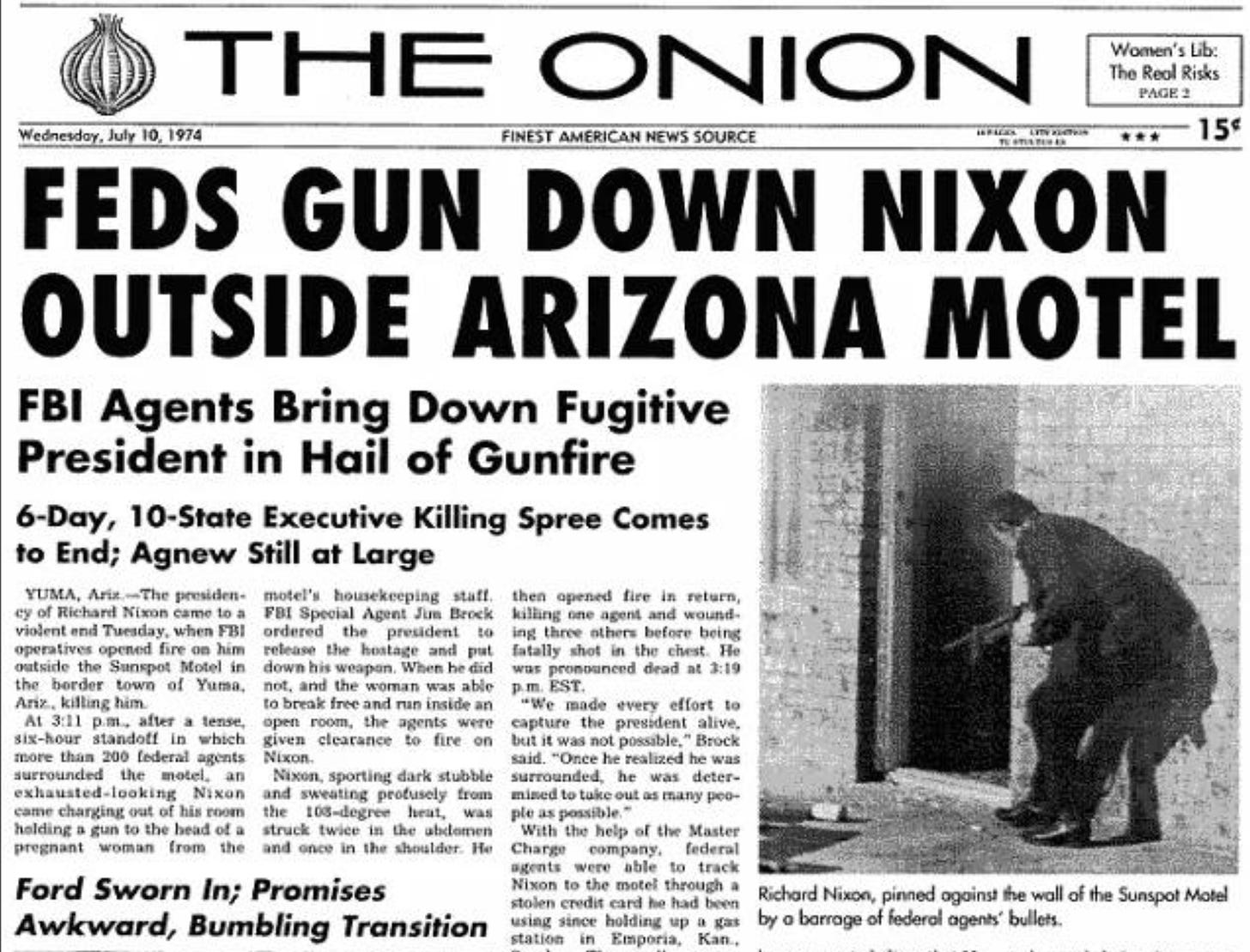I promised that I’d use Campaign Trails to offer historical perspectives on breaking news, and we certainly had that last night with the stunning revelation that Donald Trump will soon be indicted on federal charges.
Trump and his allies are already claiming that a federal indictment of a former president is “illegal and unprecedented” but, of course, neither point is entirely true. The federal government has every right to indict a former president and the only reason this is unprecedented is that President Gerald Ford’s pardon of Richard Nixon put an abrupt end to the strong likelihood that the former president would be indicted on charges related to the Watergate scandal.
In our national memory, we’ve collapsed the time between Nixon’s resignation in August 1974 and Ford’s pardon one month later into a single act, but we have to remember that the latter event didn’t automatically follow the former.
Signs of a looming Nixon indictment had been evident even when he was in office. Back in March 1974 , Nixon had been secretly named as an “unindicted co-conspirator” by the grand jury investigating the break-in. After his resignation, with the professional cover of the presidency stripped away, it seemed quite likely that Nixon would be indicted directly on charges stemming from the scandal.
“When he resigned his office Aug. 9, he had all but admitted participation in a criminal conspiracy to obstruct justice. He made public the transcripts of taped conversations that constitute the main evidence,” the New York Times noted on September 1. “Mr. Nixon is now open to the full range of criminal investigations, indictments and penalties.”
The federal government certainly believed this was true, with a memo from the Watergate Special Prosecutor’s office laying out the case for indicting Nixon the same day he left office:
Even Nixon himself believed he could — and likely would — be indicted. As Nixon biographer John Farrell noted, the disgraced former president was so worried about the looming charges it reached the point of “ruining his health,” with a flare-up of phlebitis marking the physical signs of Nixon’s mental anguish.
Ford’s pardon cut all those worries short, of course. But it’s important to remember that Ford pardoned Nixon precisely because it seemed likely that indictments were coming.
The official text of the pardon makes this crystal clear, noting specifically that “Richard Nixon has become liable to possible indictment and trial for offenses against the United States.”
True to form, though, Nixon pretended that Ford’s pardon meant something else entirely. As he famously said in his 1977 interview with British journalist David Frost, the lesson Nixon drew from the pardon was that a president was, in fact, above the law:
That’s the lesson Donald Trump seems to have learned from Watergate, but it’s one rooted in Nixon’s self-serving spin and not any reality in the actual facts.
Nixon could have been indicted, as he and everyone else at the time clearly understood. (Indeed, a Gallup Poll survey in early September showed that 56 percent of Americans thought Nixon should have faced criminal prosecution.)
What if he had been indicted?
Nixon surely would’ve waged some of the same defenses that Trump will trot out, insisting in court that the former president was above the law while insisting in the press that those holding him accountable were acting outside it. (“An unfair lynching trial of Mr. Nixon,” said one conservative ally, “would make the previous Watergate controversy a mosquito bite.”)
But despite all the noise, we would have had clarity: when a president does it, it’s still illegal.
Or, I guess, there’s a chance Nixon would’ve taken the route suggest in the Onion’s brilliant book Our Dumb Century:






